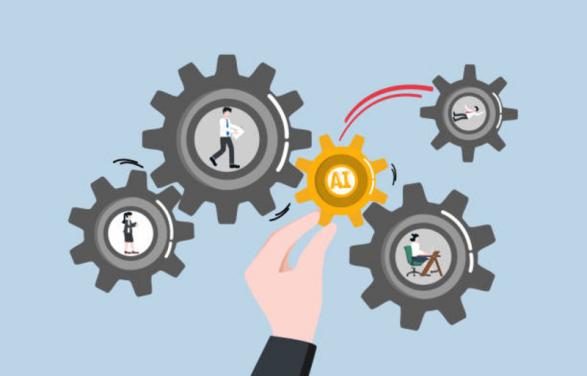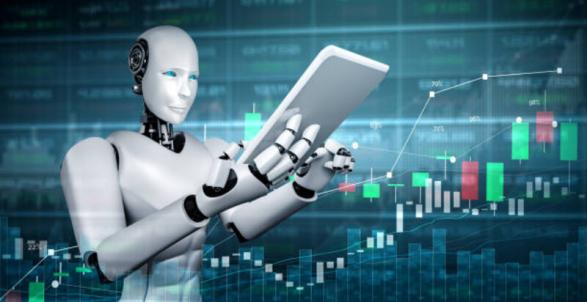Debunking the Myth: AI and Job Security
Dec 17, 2023 By Triston Martin
Artificial Intelligence AI has transformed various sectors, sparking a widespread fear of job displacement. The central thesis of this narrative suggests that AI, with its ability to automate tasks, will inevitably lead to massive unemployment. However, this perspective often overlooks the potential of AI to create new jobs and enhance human productivity in existing roles. This paper aims to debunk the myth of AI as a job-destroying force, arguing that it could be a significant job creator and enhancer in the modern era. We will delve into how AI could reshape the job market, focusing on the opportunities it brings rather than solely on the risks.
The Evolution of AI and Its Impact on Employment:

AI, as a burgeoning field, has witnessed rapid evolution over the past few decades. Its development has moved in tandem with the progress of technology, and its impact on employment has been both disruptive and transformational. Indeed, some jobs have become obsolete as AI systems have become capable of automating repetitive, mundane tasks. However, this disruption often leads to the creation of new employment opportunities.
These fresh roles often require a different skill set, centered around managing, monitoring, and leveraging AI technologies. For instance, the rise of AI has spurred demand for data scientists and AI ethicists, roles that were virtually non-existent a few years ago. Furthermore, AI has the potential to enhance productivity within existing jobs, automating mundane tasks, and freeing up employees to focus on more complex, creative aspects of their roles. This could invariably lead to an overall improvement in job satisfaction and performance.
The Misconception of AI as a Job Threat:
The concept of AI as a threat to job security is largely a misconception stemming from a lack of perspective on historical job displacement and technology advancements. Similar fears arose during the Industrial Revolution, when machines first replaced manual labor. However, instead of leading to permanent job losses, it created roles in new, unforeseen industries. The same pattern is observable with AI technology. It's not about technology eliminating jobs, but rather about jobs evolving in response to technological advancements.
Embracing AI: A Future of New Opportunities
As we stand on the brink of extensive AI integration, it is crucial to shift the narrative from fear towards acceptance and preparedness. By fostering a robust learning culture, we can equip current and future workforces with the skills required to navigate the AI-enhanced job market. This requires an investment in education and training that resonates with industry needs. Job roles are not being eradicated; they are evolving. By embracing AI and its potential, we can unlock a future of unparalleled innovation and opportunity.
The Potential of AI in Job Creation:
AI has the potential to revolutionize various sectors, creating new job opportunities along the way. For instance, AI-powered advancements in healthcare have led to the development of roles such as telemedicine specialists and medical data analysts. In transportation, self-driving cars require skilled engineers and technicians to design, build, and maintain them. The rise of AI also presents immense opportunities for entrepreneurs and startups, with the potential to disrupt traditional industries and create entirely new ones.
How AI Enhances Productivity in Existing Roles?

Job creation, AI has the potential to enhance productivity within existing roles. By automating tedious and repetitive tasks, employees can focus on more cognitive and creative aspects of their jobs. This not only improves efficiency but also allows for a better work-life balance. Furthermore, AI technology can analyze vast amounts of data in a fraction of the time it would take a human, leading to more informed decision-making and improved performance. As AI continues to advance, we can expect it to augment human capabilities rather than replace them.
AI and Future of Work:
AI's impact on the future of work needs to be viewed through a dynamic lens that acknowledges both its disruptive and transformative potential. It's paramount that the narrative shifts from fear of job displacement to a recognition of AI's potential to redefine work. This encompasses creating new jobs, enhancing existing roles, and driving efficiency. To leverage these opportunities, we must place a greater emphasis on education and training.
Equipping the workforce with AI-centric competencies, we can empower individuals to evolve with shifting job demands. Thus, in the AI-infused future of work, adaptability and lifelong learning will prove to be the most valuable assets.
Conclusion:
In conclusion, the evolution of AI has already drastically altered the job market, and its impact will continue to be felt in the coming years. While there are certainly risks associated with this transformation, there are also immense opportunities for job creation and career growth. By embracing AI and reframing our perception of it as a threat to employment, we can unlock its full potential to enhance productivity, drive innovation, and create new opportunities for the workforce. This requires a proactive approach towards reskilling and upskilling, as well as a shift in mindset towards viewing AI as an enabler rather than a competitor. Let us embrace the future of work with open minds and prepare for the ever-evolving landscape of AI-powered job market. So, let us embrace the future with open minds and be ready to adapt to the ever-evolving AI-powered job market.

Susan Kelly Nov 05, 2023
Cardinal Financial Mortgage – The Ultimate Review
4434

Susan Kelly Oct 22, 2023
Why Consider a Money Market Over Traditional Savings?
56037

Triston Martin Dec 17, 2023
Unveiling the Hidden Costs of Renewable Energy
22710

Susan Kelly May 25, 2023
Top-Rated Funeral Coverage Providers
43222

Triston Martin Jul 28, 2023
Decoding Unearned Income: A Beginner's Guide
92910

Triston Martin Jan 05, 2023
How to use a Credit Card to Pay Taxes?
29499

Triston Martin Nov 29, 2023
Mortgage Qualification: Step-by-Step Process to Prequalify
92582

Susan Kelly Dec 19, 2023
Navigating and Overcoming Bank Crises with Confidence
22229